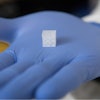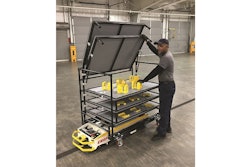
Engineering firm ASTI and 5G innovation lab 5TONIC are testing 5G applicability in ASTI Mobile Robotics' AGVs (automated guided vehicles). The project is one of several that the R&D and Innovation team at the Burgos-based mobile robotics specialist is working on with 5TONIC.
The aim is to store the data that the AGVs generate in the mobile cloud, uploading it to a server where users can "query production and machinery maintenance information, predict faults before they occur to prevent downtime, and enhance real-time AGV control," explains ASTI head of R&D and Innovation, Enrique Sierra.
Using 5G could allow ASTI to centralize the guidance algorithms currently implemented on the AGVs, increasing machine intelligence and supporting new coordination mechanisms -- not currently viable with today's solutions -- that would optimize manufacturing processes.
"The initiative starts with decoupling control from the vehicles and putting their intelligence on the server, which is what would run the software currently on board the vehicles. If we can get that to work, we'll be able to use the huge volume of data from the AGVs to coordinate vehicle control," added Sierra. The first step is separating the control layers and analyzing each one.
To support the communications requirements associated with AGV operation, the 5G network needs to deliver levels of reliability, latency and performance that current technologies like LTE cannot provide.
The trials will take place at 5TONIC's main lab, operated by founder member IMDEA Networks Institute (Leganés, Madrid), on a circuit hosting 4 or 5 vehicles programmed by ASTI engineers, with the AGV control and management algorithms being run on a high-end server provided by 5TONIC.
The AGVs will operate 24/7 and will be monitored throughout the trials. At a later stage, the researchers plan to install the demo in an automotive industry factory.






















